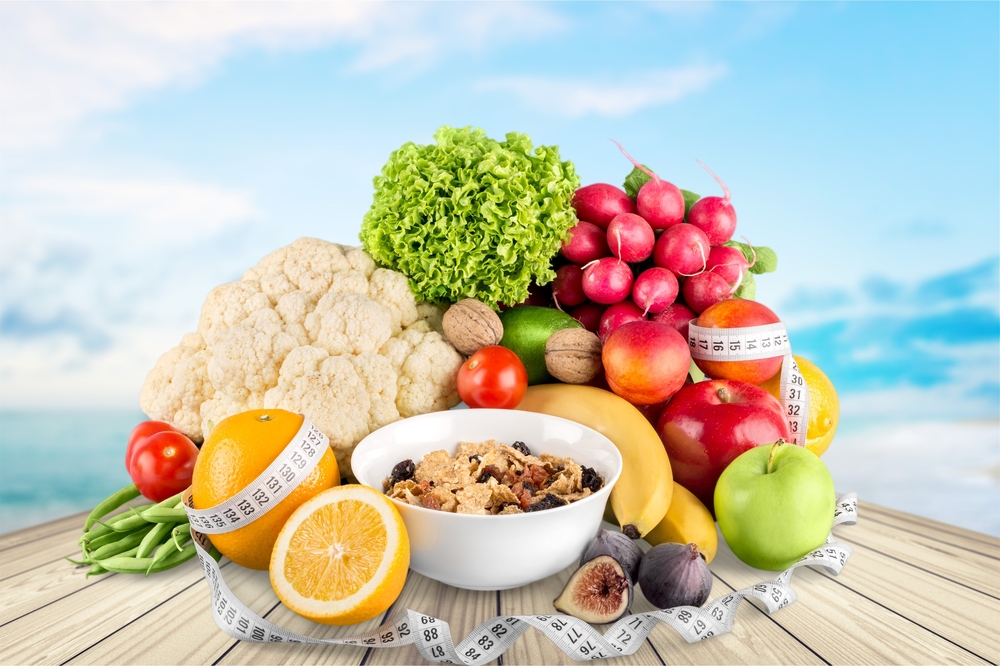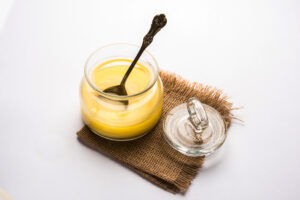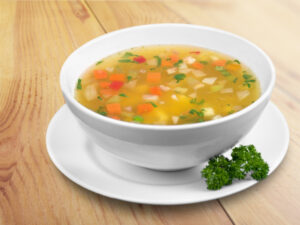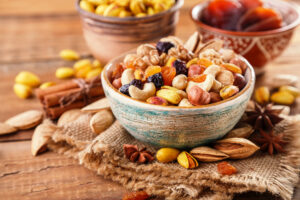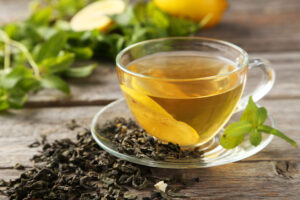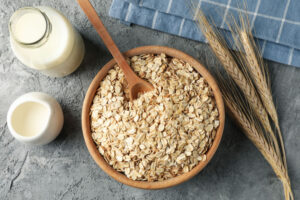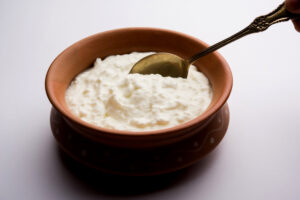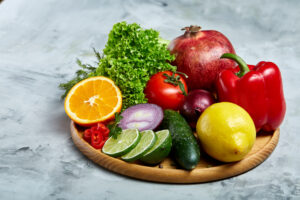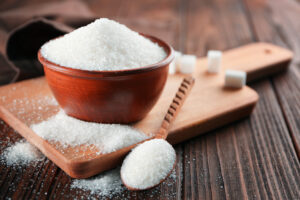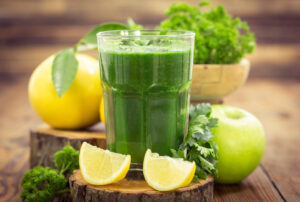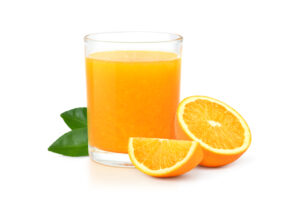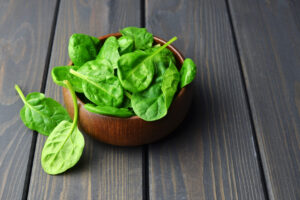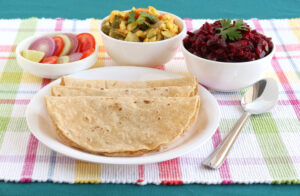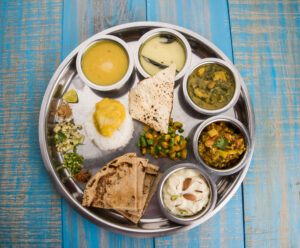The big picture is being a healthy weight and making healthy food choices, writes Deepa Desa
Some of us got a wake-up call this year – 2020 has demanded that we review many aspects of our lives, most crucially our health. Is our immunity functioning at optimum? Even while we optimistically await the arrival of the vaccine to fight Covid-19, we can continue to build up our immune systems.
We listed 21 easy diet tweaks (in random order), that you can incorporate daily for a healthier, stronger mind and body.
1. Ghee
Include good amounts of natural oils and desi ghee in your diet to keep the “Agni” or digestive strength at its optimum. More than half our immunity is driven by our digestion, and ghee is an excellent choice of food throughout the year.
2. Fresh Soups and Broths
Use a bountiful mix of veggies or chicken to stir up a stew, broth, or soup. Warm liquids help digestion, hydrate, and strengthen the body. Hot liquids speed up the process of opening a blocked nose, as seasonings of onions and pepper travel in the vapour and help to open nasal passages.
3. Dry Fruits and Nuts
Cashews, pistachios, dates, figs, almonds, walnuts – you name it, you eat it! Dry fruits are great nutrition. Not only do they help generate heat within the body during colder weather, but they also give you great energy.
4. Tea
There are a variety of teas – green and black are superlative – that you can brew, to suit the mood of your day. Tisanes also work perfectly if you’d rather not add milk. Tea has so many benefits, but we give it five stars for its antioxidant and purifying properties. Adding spices and herbs like ginger to tea during winter warms up your body; conversely, infusing herbs like peppermint and lemongrass give you an energy boost in warmer climates.
5. Warm Liquid First Thing in The Morning
This could be warm water, warm lemon water, warm turmeric water or any herb or flower infused warm water. Warm water flushes your intestines and cleanses your colon, leading to clean and healthy bowels.
6. More Fibre
Eating plenty of fibre (commonly referred to as roughage) is associated with a lower risk of heart disease, stroke, type 2 diabetes, and bowel cancer. Choosing foods with fibre – oats, bran, pulses, veggies – also make us feel fuller, help digestion, and prevent constipation.
7. Probiotics
Probiotics are basically live bacteria that are beneficial for our better digestion and immune system. Many probiotics are similar to bacteria that are naturally living in our body. Though many opt for probiotic supplements, you can also get them from fermented foods. Yogurt, kombucha, idlis, cottage cheese, miso, kimchi, buttermilk are excellent sources.
8. More Fruit and Vegetables
Too much meat could be taxing your digestion and raising your cholesterol levels, whereas a diet with plenty of fruit and veggies keeps you feeling more energetic and is easy on your systems.
9. Cut Refined Sugar
Refined sugar is typically found as sucrose, which is the combination of glucose and fructose. Food manufacturers add chemically produced sugar, typically high-fructose corn syrup, to a wide range of foods and beverages. The body breaks down refined sugar rapidly, because of which insulin and blood sugar levels rise, and you don’t feel full. Too much sugar is stored as fat, which leads to obesity and related diseases.
10. Green Juice is Good
Green juice is made from the juices of a mix of your choice of green vegetables. Common ingredients include celery, kale, Swiss chard, spinach, wheatgrass, cucumber, parsley, and mint. Add your favourite fruit like pineapple, apple, berries to sweeten, and your reward is improved digestion, weight loss, reduced inflammation, and boosted immunity. Commercial green juices are available as well, but some varieties contain added sugar so do check the label.
11. More Vitamin C
Vitamin C is one of the safest and most effective nutrients, experts say. Though it’s not the best cure for a cold, the benefits of vitamin C may include protection against immune system deficiencies, cardiovascular diseases, prenatal health problems, eye disease, and even skin wrinkling. The ideal nutrition marker for overall health, is high blood levels of vitamin C. Foods rich in vitamin C include broccoli, cauliflower, kale, kiwi, orange juice, papaya, red, green or yellow pepper, sweet potato, strawberries, and tomatoes.
12. Omega 3 Fatty Acids
Omega-3 fatty acids are associated with decreased inflammation. Omega-3 fatty acids are found in many foods, including salmon, eggs, walnuts, and flaxseed, as well as leafy green vegetables, such as spinach. Recommended as part of an anti- inflammatory diet, they are great for arthritic patients.
13. Less Oil and Pickle
Indian pickles have a lot of sodium, due to the presence of excessive amounts of salt and oil. Foods that are high in salt and grease are bad for the heart, increase levels of cholesterol in the body and are detrimental for our health. This is because depending on the oil used the pickle could contain hydrogenated or trans-fats, which are the worst kind of fats to consume. TIP: Many people are resorting to making pickle at home. This way you control the type of oil, (if at all) sugar, and salt.
14. Coffee
Newer studies have found a possible association between coffee and decreased mortality. Coffee may offer some protection against Parkinson’s disease, Type 2 diabetes, liver disease, including liver cancer, heart attack and stroke. Coffee still has potential risks, mostly due to its high caffeine content. For example, it can temporarily raise blood pressure. Do check with your doctor before you consume coffee.
15. Water
Staying hydrated is a daily necessity, no matter what the weather. But don’t wait till you’re thirsty. “Older people don’t sense thirst as much as they did when they were younger. That could be a problem if they’re on a medication that may cause fluid loss, such as a diuretic,” says Dr Julian Seifter, a kidney specialist and associate professor of medicine at Harvard Medical School.
Water keeps the body functioning properly, carrying nutrients and oxygen to your cells, flushing bacteria from your bladder, aiding digestion, normalising blood pressure, stabilising heartbeat, cushioning joints, regulating body temperature, and maintaining electrolyte (sodium) balance.
Generally, 3 to 4 litres of water daily are what you should aim at, for effective hydration.
16. Cut Down on Aerated Drinks
Drinking high amounts of sugar-sweetened beverages such as cola can have various adverse impacts on your health. These range from increased chances of tooth decay to a higher risk of heart disease and metabolic disorders like type 2 diabetes.
17. Less Junk Food
Junk food is the best example of an unbalanced diet categorised by a huge proportion of simple carbs, refined sugar, salt, saturated fat and with very low nutritional value. These foods are processed to a great extent where they almost lose all of their vital nutrients, fibre and water content.
18. Drop Maida Completely
Nutritionist Anjali Mukerji says that maida, the refined form of wheat, is very detrimental to the body. It is fattening, has a high glycaemic index (GI 71), and people who eat maida consume twice the number of calories as compared to those who eat ‘whole’ unprocessed, low GI foods. Nutritionists and doctors usually advise us to decrease the salt intake if a person has a blood pressure problem, and to control ‘sweet intake’ in diabetes… but maida is a food which needs to be avoided in all degenerative health conditions as it disrupts your metabolism, leads to inflammation, hyperinsulinism, insulin resistance and eventually type II diabetes, heart disease, arthritis, Alzheimer’s and even cancer. So, avoid junk food, stick to whole-wheat atta, and also consume other types of flour like bajra, nachani, rajgira, jowar… the shops contain many options.
19. Less Processed Food – More Fresh Cooked Meals
Buying processed foods can lead to you eating more than the recommended amounts of sugar, salt and fat; as you may not be aware of how much has been added to the food you are buying and eating. Eating fresh cooked meals at home give you control on exactly what you are putting in your body and fresh food is high on nutrients.
20. Eat a balanced diet
Instead of overloading on proteins, cutting carbs, avoiding fats- try following the good old balanced diet. Your body may thank you for it and you’ll live healthier and longer!
21. Deliberate on How You Eat
Simple habits like eating slowly and mindfully, with family or friends (rather than in front of a TV, whilst talking on the phone etc), not over-eating, avoiding stress or binge eating, having more home cooked meals than ordering from outside; many factors play a pivotal role in improving your diet and nutrition.
That does it with our 21 diet tweaks for 2021. Do check with you doctor before incorporating or removing foods from your diet plan.
The big picture is being a healthy weight and making healthy food choices. It’s about eating a diet with whole foods, lean proteins, complex carbohydrates. Focus on making good food choices every day on a consistent basis. It’s said, “When your diet is wrong medicine is of no use but when its correct, you don’t need to use so much medicine.”
Stay healthy and happy through 2021!



